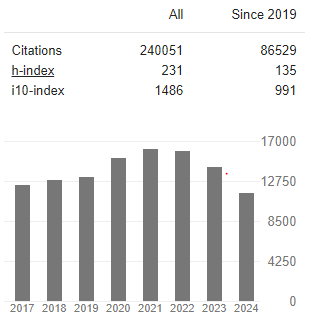Development Study of Health Belief Model Scale for Lung Cancer and its Screening
Abstract
Melike Demir Dogan, Alime Sul, Gulsum Aynaci, Hatice Curuk, Sedanur Yesilyurt
Aim: The aim of this study was to conduct the validity and reliability study of the Health Belief Model Scale for lung cancer and its screening.
Methods: In the first stage, permissions for the use of the scale were obtained and the Champion’s Health Belief Model Scale was arranged for lung cancer. 150 students, who agreed to participate in the study, were included in the study and the data were collected using test-retest method with a two-week interval. Correlation between the two measurements was calculated using intraclass correlation coefficient. Internal consistency reliability was evaluated by Cronbach’s alpha coefficients. Construct validity was evaluated by confirmatory factor analysis.
Results: The validity-reliability of the health belief model scale for lung cancer and its screening was assessed with the test-retest design. Correlation between the two measurements was calculated using intraclass correlation coefficient (p <0.001). The scale’s Cronbach’s alpha value was found to be 0.760. The scale consists of 5 subgroups. The Cronbach’s alpha value of the trust-benefit perception subscale was 0.779, the Cronbach’s alpha value of the sensitivity perception subscale was 0.833, the Cronbach’s alpha value of the barrier perception subscale was 0.737, and the Cronbach’s alpha value of the subscale of the perception of health motivation was 0.725.
Conclusion: The validity and reliability of the health belief model scale for lung cancer and its screenings were conducted and it was determined that the scale was a valid and reliable scale.



